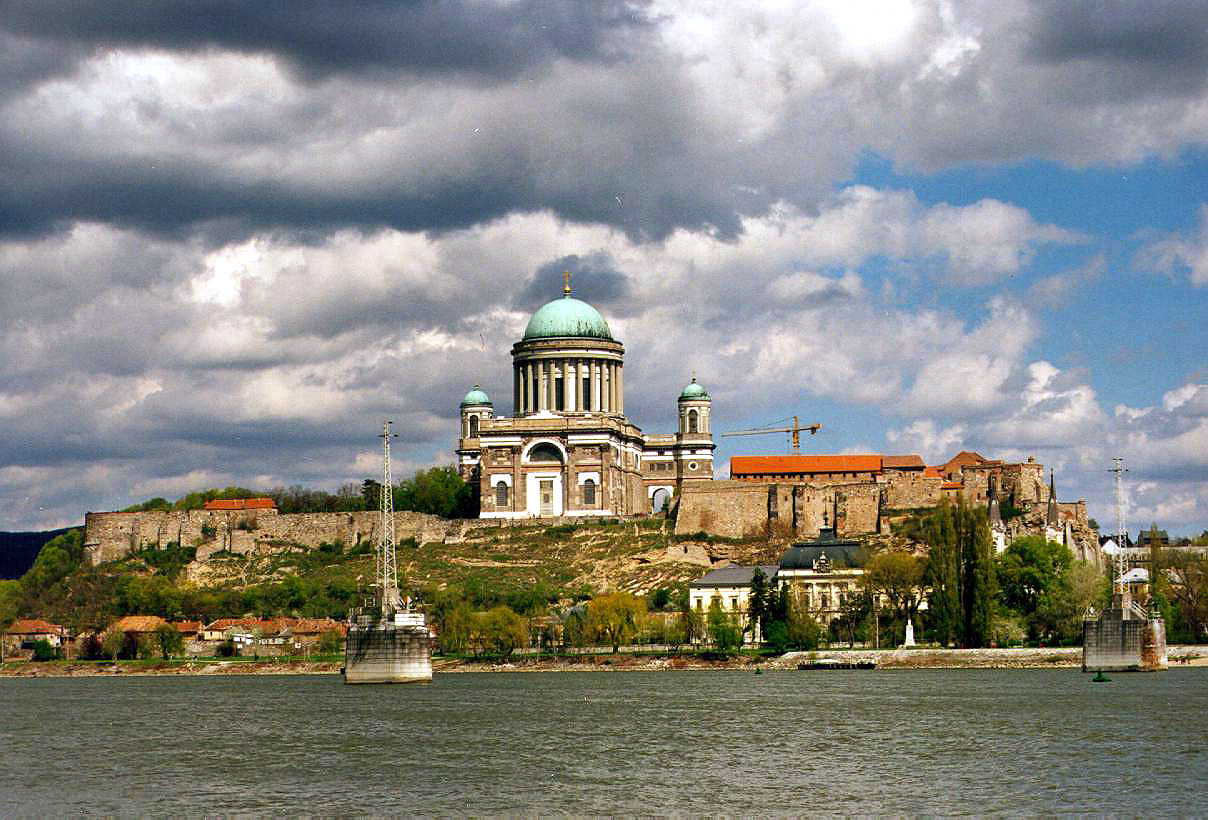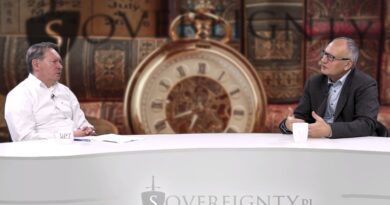The Hungarian recipe for culture war

The purpose of the MCC’s existence and organizing events like the MCC Feszt is to enable Hungarian youth to confront views and ideas different from those that dominate their original academic environment.
Olivier Bault
Esztergom, the cradle of Christian Hungary and the country’s first capital. In Polish, Ostrzyhom. It was in this Danube city located on the border of the former Roman Empire that the baptism and coronation of Stephen I the Holy took place in 1001. Today a monumental basilica towers over the city: the Cathedral of the Assumption of the Blessed Virgin Mary and St. Adalbert. From the old town of today’s population of less than 30,000, you can see across the wide Danube River the sister city of Štúrovo (former: Párkány) in Slovakia, also mostly inhabited by Hungarians. They were separated from their homeland as a result of the 1920 Treaty of Trianon, which is not infrequently compared by Madzians to the first two partitions of Poland.
The two cities are linked by a bridge destroyed by the Germans during World War II and only rebuilt in 2001.The local banks of the Danube were freed from the rule of the Ottoman Empire in 1683 by Polish King John III. Sobieski, whose great monument can be admired on the Slovak side of the city and who is also mentioned in the great basilica on the Hungarian side.
DEBATES AND ROCK
For the past three years, the Hungarian city of Ostrzyhom has hosted a rather unusual event, which this year attracted, according to its organizers, a record number of more than 50,000 people, the vast majority of them of student age. For three days, from Thursday, July 27th to the early morning hours of Sunday, July 30th, stages and exhibition stands stood on the streets of the central part of the city, as well as catering trucks selling drinks, hot dogs or greasy Hungarian langoustines. The event is accompanied by evening street concerts, with mostly beer drinking and dancing or possibly just listening to bands playing contemporary music. Young people roam the city between concerts or sit in noisy pubs and gardens, partying late into the night – some even into the early morning. And during the day, some of the same student youth, admittedly somewhat less in number, are closely following the discussions of more-or-less famous panelists from Hungary and various parts of the world. The latter debate culture, economy and politics on the same street stages from which rock or other music resounded the previous evening.
(…)
The invited speakers and presenters, as well as the journalists I spoke with, agreed that, apart from the MCC Feszt Festival in Ostrzyhom, they knew of no such event in the world. At the same time, they all unanimously pointed out that this is a great idea to reach young people with talks on serious topics. In addition, and this is rare today, it can be done in a place where right-wing conservative views prevail, attracting young people from different backgrounds. We should add, however, that at the MCC Feszt in Ostrzyhom there are also sometimes panelists with rather liberal-left or even Marxist views. A pluralism of opinions is thus preserved, as the organizers from Mathias Corvinus Collegium are keen to emphasize.

THE RESPONSE OF CONSERVATIVES
The institution is the organizer not only of this one annual event, but also of many other events inside and outside the country. It is the largest private college in Hungary. It operates as a foundation and currently has about 7,000 students, with a strong upward trend. These are students from other universities – public as well as private – and a variety of majors, both sciences and humanities, for whom MCC is not only a free dormitory, but also a free humanities school offering additional educational opportunities. Although it operates independently, it has strong staff ties to Fidesz and the government. In 2020, the Hungarian National Assembly voted a $1.7 billion US government subsidy for the institution. However, MCC describes itself as a forge of talent open to all, as one can get into the university by entering competitions that select the best candidates based on purely merit-based criteria – and this is true regardless of one’s alleged views. This was confirmed to me by one student with openly liberal-left views (and appearance), which did not prevent him from being hired by MCC for a paid position and appointed to the board responsible for recruiting more students.
It can, therefore, be said that Mathias Corvinus Collegium is, in a way, a response by Viktor Orbán’s government to the ongoing culture war. It is also a constructive response to the fact that also in Hungary, universities and academia have been dominated by left-liberal ideologies. The purpose of the MCC’s existence and the holding of events like the MCC Feszt in this town 50 kilometers northwest of Budapest (about an hour’s journey by car or train) is to enable Hungarian youth to confront views and ideas other than those that dominate their original academic environment.
At the same time, the MCC is also a vehicle for the conservative government of Viktor Orbán to influence foreign elites. Indeed, in addition to its educational and cultural activities, it conducts scientific research and serves as a think tank. In the latter respect, it differs markedly from the Polish government’s think tanks. On the one hand, not being a government institution but a private foundation, MCC has more autonomy than think tanks such as the Polish Institute of International Affairs, which operates under the Ministry of Foreign Affairs in Warsaw. On the other hand, as Prof. Tomasz Grzegorz Grosse, a political scientist, Europeanist, and sociologist at Warsaw University, who was present at this year’s MCC Feszt, explained to me, the MCC serves to present and defend the Hungarian conservative point of view on issues important to Hungarians abroad.
(…)
IN THE INTEREST OF HUNGARY
A good illustration of this strategy is the establishment of a new MCC branch in Brussels, with a team of experts in the EU capital itself, where it organizes debates, training sessions, and conferences. MCC Brussels seeks to influence EU decision-makers, while on the other hand it is a center where students of Mathias Corvinus Collegium can become more familiar with the functioning of EU institutions.
As can be seen, the Hungarian government not only speaks out about dangerous ideologies coming from the West, but also works actively to promote conservative Hungarian values in Hungary and Europe. In this regard, as Miklós Szántho, director of the Hungarian Center for Fundamental Rights (organizer of the Hungarian edition of the CPAC conference), made clear at this year’s MCC Feszt, “Hungary’s interests coincide with the true interests of Europe.”
This article was published in August 2023 in “Do Rzeczy” magazine.



